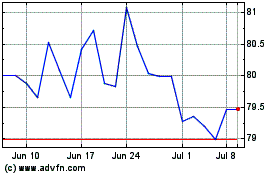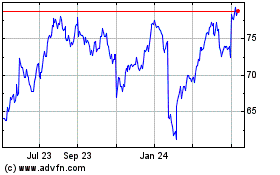UNITED STATES
SECURITIES AND EXCHANGE COMMISSION
WASHINGTON, D.C. 20549
FORM SD
Specialized Disclosure Report
DuPont de Nemours, Inc.
(Exact name of registrant as specified in its charter)
| | | | | | | | |
Delaware | 001-38196 | 81-1224539 |
(State or other jurisdiction of
incorporation) | (Commission file number)
| (IRS Employer Identification No.)
|
| | |
| 974 Centre Road, Building 730 |
| Wilmington, DE 19805 |
(Address of principal executive offices) (Zip code)
| | |
Erik T. Hoover |
(302) 295-5783 |
(Name and telephone number, including area code, of the person to contact in connection with this report.)
Check the appropriate box to indicate the rule pursuant to which this form is being filed, and provide the period to which the information in this form applies:
ý Rule 13p-1 under the Securities Exchange Act (17 CFR 240.13p-1) for the reporting period from January 1 to
December 31, 2023.
SECTION 1 - CONFLICT MINERAL DISCLOSURE
Item 1.01 Conflict Minerals Disclosure and Report.
Conflict Minerals Disclosure
A copy of DuPont de Nemours, Inc.’s (“DuPont” or the “Company”) Conflict Minerals Report is filed as Exhibit 1.01 hereto. This Form SD and the Conflict Minerals Report are publicly available on the Company’s website at www.investors.dupont.com/investors, as well as the SEC’s EDGAR database at www.sec.gov.
Item 1.02 Exhibit.
The Company has filed, as an exhibit to this Form SD, the Conflict Minerals Report required by Item 1.01.
SECTION 2 - EXHIBITS
Item 2.01 Exhibits.
The following exhibit is filed as part of this report:
Exhibit 1.01 - Conflict Minerals Report as required by Items 1.01 and 1.02 of this Form SD.
SIGNATURES
Pursuant to the requirements of the Securities Exchange Act of 1934, the registrant has duly caused this report to be signed on its behalf by the duly authorized undersigned.
| | | | | | | | | | | | | | |
| DUPONT DE NEMOURS, INC. | | | |
| Registrant | | | |
| | | | |
| By: | /s/ Lori Koch | | | |
| Name: | Lori Koch | | | |
| Title: | Chief Financial Officer | | | |
| | | | |
| Date: | May 30, 2024 | | | |
DuPont de Nemours, Inc.
Conflict Minerals Report
BACKGROUND
This Conflict Minerals Report (this “Report”) of DuPont de Nemours, Inc. (“DuPont” or the “Company”), provides information with respect to products for which Conflict Minerals are “necessary to the functionality or production” that were manufactured by or contract manufactured for the Company and its consolidated subsidiaries, during the 2023 calendar year. The term Conflict Minerals, as defined by the U.S. Securities and Exchange Commission (the “SEC”), broadly encompasses all gold, columbite-tantalite, cassiterite, and wolframite minerals, and these specific derivatives: tantalum, tin, tungsten, and gold, regardless of the country of origin of such minerals and regardless of whether or not the purchase of such minerals actually finances or benefits armed groups, in the Democratic Republic of the Congo or an adjoining country, (the “Covered Countries”). “Armed group” and “adjoining country” have the meanings assigned to those terms by the SEC in Form SD.
COMPANY OVERVIEW
DuPont is a global innovation leader with technology-based materials and solutions that help transform industries and everyday
life by applying diverse science and expertise to help customers advance their best ideas and deliver essential innovations in key markets including electronics, transportation, construction, water, healthcare and worker safety.
CONFLICT MINERALS
Principles
As a global purchaser and supplier of goods, DuPont is committed to preventing the use of Conflict Minerals that fund armed conflict in the Covered Countries. DuPont’s Statement of Principles regarding the sourcing of Conflict Minerals is available on its website at www.dupont.com.
During its review process, DuPont determined that for calendar year 2023, Conflict Minerals were necessary to the functionality or production of certain products (the “SP Covered Products”) that were manufactured or contracted to be manufactured by DuPont’s businesses, (collectively, the “Businesses”). These Businesses are in the supply chain from Conflict Mineral smelters/refiners, and upstream from the products’ end-users, which include industrial users, converters and retailers who eventually sell final products to end-consumers. Because the Conflict Minerals for the Businesses entered the Company’s supply chain many layers removed, it can be difficult to determine the country of origin. Therefore, the Businesses worked directly with their respective raw material vendors to determine the sources and origins used in the manufacturing of their products.
The Businesses used a cross-functional team to implement processes related to the responsible sourcing of Conflict Minerals, including the purchasing, legal, supply chain, and product stewardship functions. The Businesses’ respective due diligence and related implementation processes were designed to conform in all material respects to the OECD Due Diligence Guidance for Responsible Supply Chains of Minerals from Conflict-Affected and High-Risk Areas, specifically as it relates to “Downstream companies”, as defined in such guidance, in the case of the Businesses.
The Company at least annually communicates information about its purchasing policy with regard to Conflict Minerals, its expectations with regard to vendor sourcing of Conflict Minerals and requests vendors to provide a completed Conflict Minerals reporting template (the “CMRT”). The CMRT was created by the Responsible Minerals Initiative (“RMI”), founded by members of the Responsible Business Alliance and the Global e-Sustainability Initiative. The CMRT includes questions pertaining to the responsible sourcing of Conflict Minerals and requires each vendor, as applicable, to identify, among other things, all of the smelters/refiners used to supply any Conflict Minerals contained in materials or products supplied by such vendor.
DuPont has established a data management and record retention program and maintains a “Master Supplier Database” which is utilized to manage supplier contact information and to send an initial request for information from suppliers as part of DuPont’s reasonable country of origin inquiry (“RCOI”).
DuPont conducts supply chain due diligence in accordance with the framework of the OECD; Second Edition, including the related supplements on gold, tin, tantalum and tungsten (the “OECD Guidance”), on the source and chain of custody of the Conflict Minerals contained in the Covered Products. The OECD Guidance provides a five-step framework for risk based due diligence in the mineral supply chain. The five steps are (1) establish strong company management systems, (2) identify and assess risks in the supply chain, (3) design and implement a strategy to respond to identified risks, (4) carry out an independent third-party audit of the smelters’/refiners’ due diligence and (5) report on supply chain due diligence.
For each of the SP Covered Products, DuPont conducted in good faith, a RCOI regarding the Conflict Minerals that included: | | | | | |
| 1. | Mapping the Company’s supply chain, |
| 2. | Contacting each supplier or vendor, (and where applicable contract manufacturers who independently procured raw materials) to determine if the minerals were sourced from the Democratic Republic of the Congo or adjoining countries, or were derived from scrap or recycled material, and |
| 3. | Requesting written CMRT certifications from suppliers regarding the source for the 2023 Conflict Minerals. |
The RCOI is reasonably designed to determine whether any of the Conflict Minerals contained in the SP Covered Products originated in the Covered Countries and whether the Conflict Minerals originated from recycled or scrap sources.
Following its RCOI, DuPont determined that it had sourced products incorporating Conflict Minerals from 35 suppliers for production of certain SP Covered Products that are part of its Electronics & Industrial and Water & Protection businesses. DuPont worked directly with these suppliers to obtain completed CMRTs, or in the case of one supplier, commensurate information. Citing confidentiality, another supplier refused to provide specific country of origin or smelter information; DuPont has discontinued all purchases from this supplier.
Based on the supplier responses, DuPont conducted additional due diligence regarding the source and supply chain for Conflict Minerals supplied by 14 of these suppliers and used in the production of the SP Covered Products identified in the table below.
DuPont does not have a direct relationship with the smelters and mines at issue since it does not directly purchase these minerals from smelters or mines. However, the Company actively engages in trade associations and other external groups which include major manufacturers in the chemicals and electronics industries as well as other manufacturing sectors. DuPont leverages industry-wide initiatives to understand and evaluate upstream actors in the supply chain, including the RMI and the related CMRT. DuPont’s due diligence included reliance on work conducted by the RMI, specifically the Responsible Minerals Assurance Process (“RMAP”) which uses an independent third-party audit to identify smelters and refiners that have systems in place to assure sourcing of only conflict-free materials. A list of smelters and refiners that meet the RMAP audit standards is published on the RMI website. The RMAP audit standards are developed according to global standards including the OECD. DuPont compared suppliers’ responses to the list of Conflict-Free Smelters maintained by the RMI and validated through the voluntary RMAP. All such smelters/refiners validated as Conflict-Free Smelters.
| | | | | | | | | | | |
| Product Line | Identified SP Covered Products | Conflict Mineral | Covered Country |
Electronics & Industrial | Connectors; printed circuit boards (PCB);IC leadframe; IC Wafers: Passive components (e.g., capacitors, inductors.) LED modules, photopolymer resists; antifriction coatings; lubricants for valves, brake pads, and high-temperature components; fasteners.
| Tin | Democratic Republic of Congo; Burundi; Rwanda; Uganda. |
| Water & Protection | Foam sealant/insulation used for various commercial applications; elastomeric flashing and joint compound material. | Tin | Democratic Republic of Congo;
Burundi; Rwanda; Uganda. |
For risks identified as a part of the due diligence process, DuPont has established an ongoing risk management and assessment program that includes:
a.Contractually obligating suppliers to provide information regarding source and supply chain for Conflict Minerals as a part of new agreements and contract renewals;
b.Educating direct suppliers to increase knowledge of reporting responsibilities and to improve the information contained in supplier survey responses; and
c.Participating in relevant industry groups and trade associations to timely identify industry best practices regarding responsible sourcing of Conflict Minerals.
Due to the complexity of its supply chains, DuPont does not have direct relationships with Conflict Minerals smelters and refiners and does not perform or direct audits of these entities within its supply chain. DuPont supports and leverages the audit work conducted by the RMI to comply with the OECD Guidance. The RMI has implemented a RMAP and has been conducting mineral assessments and audits for several years. DuPont also collaborates with other industry associations as well as with its suppliers and customers to validate information obtained from several different sources.
DuPont de Nemours (NYSE:DD)
Historical Stock Chart
From May 2024 to Jun 2024

DuPont de Nemours (NYSE:DD)
Historical Stock Chart
From Jun 2023 to Jun 2024
